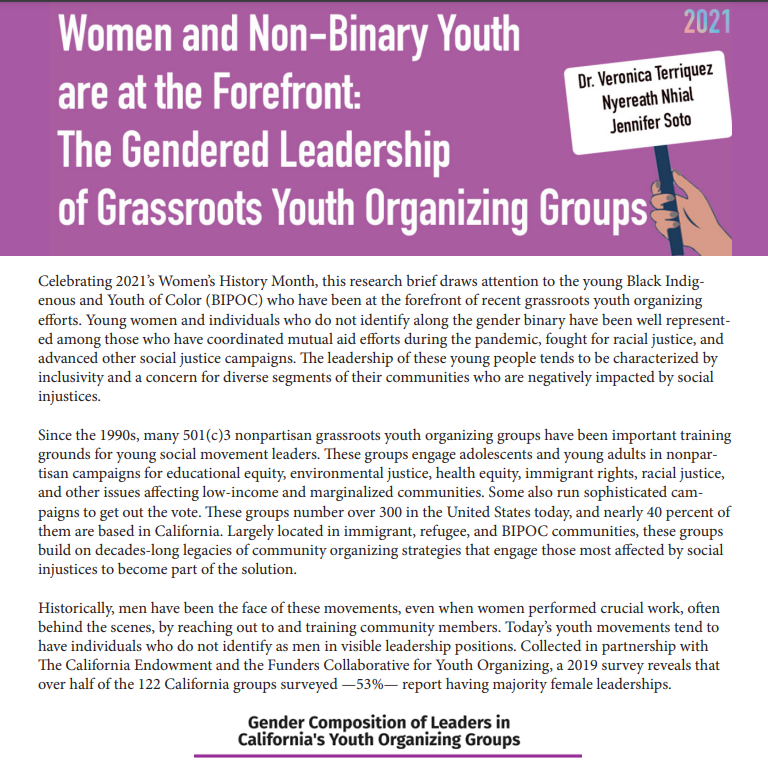
Women and Non-Binary Youth are at the Forefront: The Gendered Leadership of Grassroots Youth Organizing Groups
March 2021
By Dr. Veronica Terriquez, Nyereath Nhial, Jennifer Soto
Celebrating 2021’s Women’s History Month, this research brief draws attention to the young Black Indigenous and Youth of Color (BIPOC) who have been at the forefront of recent grassroots youth organizing efforts. Young women and individuals who do not identify along the gender binary have been well represented among those who have coordinated mutual aid efforts during the pandemic, fought for racial justice, and advanced other social justice campaigns. The leadership of these young people tends to be characterized by inclusivity and concern for diverse segments of their communities who are negatively impacted by social injustices.
Since the 1990s, many 501(c)3 nonpartisan grassroots youth organizing groups have been important training grounds for young social movement leaders. These groups engage adolescents and young adults in nonpartisan campaigns for educational equity, environmental justice, health equity, immigrant rights, racial justice, and other issues affecting low-income and marginalized communities. Some also run sophisticated campaigns to get out the vote. These groups number over 300 in the United States today, and nearly 40 percent of them are based in California. Largely located in immigrant, refugee, and BIPOC communities, these groups build on decades-long legacies of community organizing strategies that engage those most affected by social injustices to become part of the solution.



